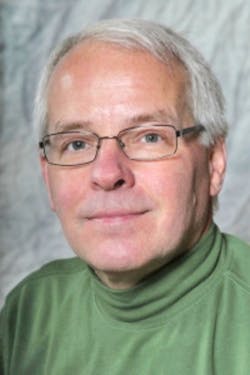Labor economist suggests technology is dividing America
Technology has restructured the economy, shaken up the workforce, and shifted opportunity to tech-centric urban hubs, writes Nancy Scola, a senior technology reporter for POLITICO Pro, adding that artificial intelligence will accelerate change.
“Economists broadly agree that technology will continue to be an engine of economic growth,” she writes. “But it also will upend old certainties about who benefits. Already, we can see a growing inequality gap, with winners and losers by region and workplace. The next wave of changes, handled badly, could make this gap even more extreme.”
Scola cites MIT researcher and labor economist David Autor as saying of this wave of changes, “I don’t think the U.S. is dealing with it especially well.”
Autor cites as examples Saudi Arabia and Norway. Both have oil wealth but have responded differently, leaving Saudi Arabia rich, unequal, and unhappy whereas Norway is rich, egalitarian, and happy. If technology is the oil of the United States, leaders will have to decide whether to pursue a path of segregated or shared wealth.
In a Q&A with Scola, Autor outlines various aspects of automation and its effect on the workforce. He sees a polarization of jobs—people without college degrees can no longer count on jobs in manufacturing or clerical and administrative support. “Now, increasingly, they’re in cleaning, home health, security, etc.,” he says. “Ironically, we’ve automated some of the stuff that was more interesting for us, and we’re left with some of the stuff that is less interesting.”
Autor says he is not worried about robots taking all the jobs. The concern is that whether the jobs that are available will pay decent wages and whether people will have sufficient skills to do them. “It’s never been a better time to be a highly educated worker in the western world,” he says. “But there hasn’t been a worse time to be a high school dropout or high school graduate.”
Scola asks Autor about his 2001 prediction of geographic arbitrage, with companies being able to take advantage of people working anywhere, thanks to the Internet, adding, “My sense is that hasn’t happened.” Autor agrees, noting that few workers live in remote hilltop houses overlooking the water. “It appears that remote and in-person communications are complements, not substitutes,” he says. “Somehow the force of people wanting to clump together has actually, seemingly, if anything gotten stronger.”
That in turn has led to geographic inequality. As an example, he cites Amazon’s plans to establish a second headquarters. The company is considering cities like Austin, Boston, and Chicago—not Gary, Indiana, which “…has been down and out since they made The Music Man.”
He adds, “Boston, where I live now, is growing explosively: Unemployment is incredibly low, real estate prices are really high, the city’s getting much more crowded. So, you would think that companies would be running away. But Amazon, Microsoft, and Google all have campuses within two blocks of my office at MIT. There’s an agglomeration force that causes companies to want to move where other companies are. And talented people move where other talented people are.”
Autor says the lesson of history is that we face an opportunity, with things that raise the GDP making us more productive and creating aggregate wealth. The question is whether we use that wealth to create a mobile, prosperous, open society or to make some people very wealthy while keeping everyone else quiet. “So, I think we are at an important juncture, and I don’t think the U.S. is dealing with it especially well,” he concludes. “Our institutions are very much under threat at a time when they’re arguably most needed.”
Read the entire Q&A here.
About the Author

Rick Nelson
Contributing Editor
Rick is currently Contributing Technical Editor. He was Executive Editor for EE in 2011-2018. Previously he served on several publications, including EDN and Vision Systems Design, and has received awards for signed editorials from the American Society of Business Publication Editors. He began as a design engineer at General Electric and Litton Industries and earned a BSEE degree from Penn State.
